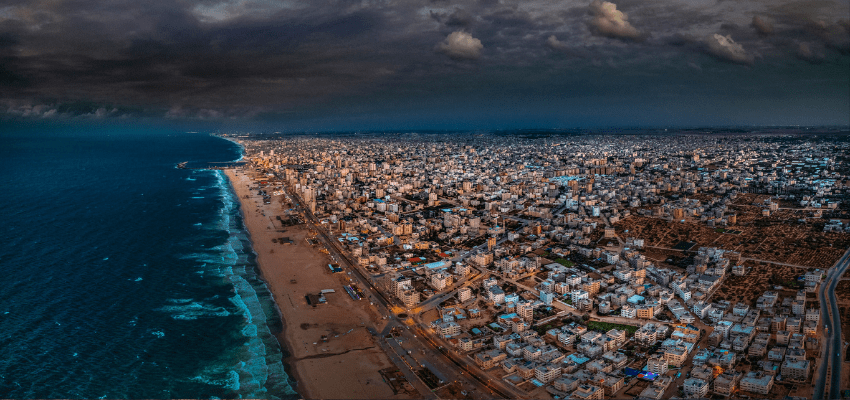This article originally appeared in the National Post.
By Raheel Raza and Mohammed Rizwan, April 25, 2024
On March 25, Shirin Taber, executive director of Empower Women Media, helped organize an Abrahamic Panel discussion of interfaith leaders from throughout North America at the United Nations in New York. The focus was on the effectiveness of the Abraham Accords to bring peace to the Middle East and the role of women in that process. It also featured a discussion about what will happen in Gaza “the day after” the war ends.
The overriding theme was fostering peace and prosperity in the Middle East, according to the principles laid out in Abraham Accords. The accords, with the inclusion of Saudi Arabia and other Muslim states, are an excellent foundation on which to build peace and security in the Middle East.
The Abraham Accords are a series of agreements between Israel and several Muslim countries — including the United Arab Emirates, Bahrain, Sudan and Morrocco — that were signed in 2020 and 2021. They can act as a statutory framework to build the infrastructure of peace and security in Palestinian territories.
The key to this peace and security would be Saudi Arabia, which was believed to be very close to signing onto the Abraham Accords prior to Hamas’s Oct. 7 massacre. Indeed, the Oct. 7 attack was seen widely as an attempt to prevent the Saudis from signing the accords.
It’s noteworthy that the current signatories of the accords have critiqued the violence in Gaza, but none of them reneged on their participation.
Saudi Arabia — along with Oman, Indonesia, Pakistan and Qatar — would likely be willing partners in a plan that used the Abraham Accords as the basis for the reconstruction of Gaza and a long-term peace in the Middle East. Expanding the accords to include other Muslim states would help legitimize any post-war plans for Gaza.
As the conflict in Gaza, which was triggered by the Hamas terror attacks of Oct. 7, surpasses the six-month mark, the world, Israel and its Arab neighbours are preparing for the new realities of a post-Hamas Gaza.
With Hamas, a terrorist organization that has ruled Gaza for nearly 17 years, on the verge of being wiped out, and the comparatively docile Palestinian Authority lying in vegetative state, the question on everyone’s mind is: who will administer the Palestinian territories once the war is over?
It’s hard to imagine that Israel could be successful in this pursuit, because it will be seen as an occupying force, as it has been perceived by the Palestinians since 1948, which would invite further security threats. Although a two-state solution is the ultimate goal that most of the international community would like to see, it can’t happen tomorrow and there is little appetite for such a solution within Israel at the moment.
It likely won’t be long before Hamas is effectively dismantled and the Palestinian population is allowed back into northern Gaza. The job at hand will be to agree on a framework that will allow for the reconstruction of Gaza and start building the institutions of government to pave the way for eventual Palestinian self-rule in Gaza and the West Bank.
But this effort must be led by the United States and signed off on by the western world. And it will necessitate strict security guarantees for both Israel and Saudi Arabia.
The Saudis, of late, have questioned America’s commitment to the region. They have been looking at China as a possible future security partner, which, along with more normalized relations with Iran, could address the kingdom’s security needs if the U.S. walks away from the Gulf. A Saudi-Israeli partnership for peace could allay these fears and build a new security infrastructure in the Middle East that could guarantee long-term peace.
The Saudis have made clear that any normalization with Israel must be accompanied by a firm commitment to an eventual two-state solution. Getting Riyadh to step up and help page the path to Palestinian statehood would be an excellent interim arrangement that could guarantee stability and prosperity (spurred by Gulf investments) for the Palestinians and security for Israel.
The questions for Canadians are: Where is Canada on the Abraham Accords? And why is Prime Minister Justin Trudeau once again missing out from this very significant peace and power play that potentially could upend the balance of power in the Middle East for decades to come?
After missing out on important security and economic pacts in the Pacific like AUKUS and the QUAD, Canada is once again missing in action.
Raheel Raza is on the advisory board of Abraham Global Peace Initiative and a board member of the Council of Muslims Against Antisemitism.
Mohammed Rizwan is a former Pakistani journalist who has worked with numerous international media outlets, including the Washington Post, the Telegraph and the Khaleej Times.






